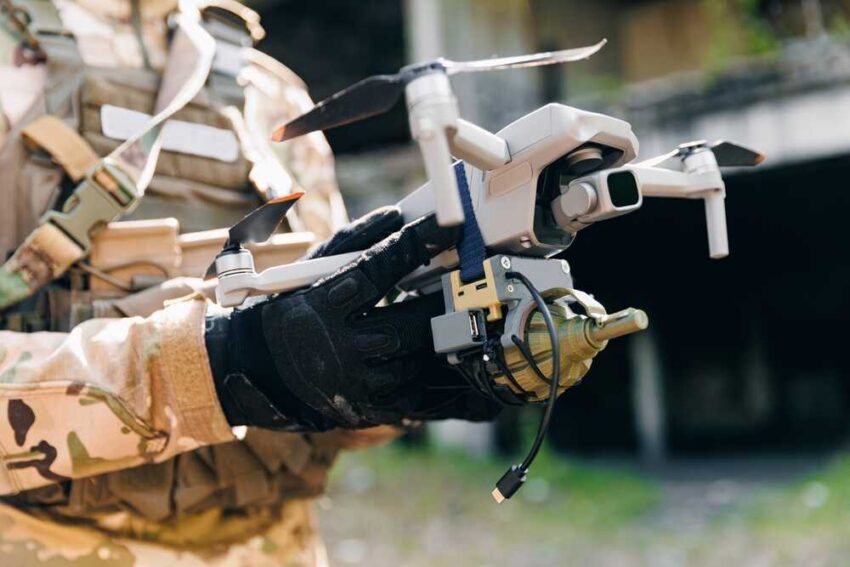(LibertySociety.com) – The psychological toll of drone warfare on soldiers in Ukraine’s International Legion reveals the unseen scars beyond the battlefield.
At a Glance
- US veteran Carl Larson highlights the negative impact of drones on soldier morale.
- Drones restrict soldiers’ movements, confining them to bunkers.
- Fiberoptic drones are nearly undetectable, evading traditional defenses.
- The constant drone threat changes military tactics, impacting mental health.
Drone Warfare and Soldier Morale
Carl Larson, a US veteran who joined Ukraine’s International Legion, has shared a harrowing account of drone warfare’s impact. According to Larson, the omnipresent threat of drones severely diminishes troop morale on the front lines. These sophisticated unmanned aerial vehicles create an atmosphere of perpetual danger, confining soldiers to bunkers as they grapple with the realization that the next moment could be their last.
Larson’s perspective draws on personal tragedy, recounting the loss of fellow soldiers who fell victim to sudden drone attacks. The randomness and unpredictability of these aerial assaults contribute to a sense of helplessness among troops. Many soldiers struggle with a feeling that their ability to fight back is limited.
President Zelensky has released his plan for victory, which has been met with varying degrees of acceptance. Regardless of differing opinions, we now have a clearer picture of what the President is aiming for.
I don’t intend to criticize his plan – after all, it offers some…
— Tatarigami_UA (@Tatarigami_UA) October 16, 2024
Technological Advancements in Drones
Modern drones, especially fiberoptic models, pose a considerable threat. According to Larson, these drones are difficult to detect and neutralize, eluding traditional methods of defense. The introduction of such technology in warfare is a game-changer, as it forces combatants to continuously adapt their tactics. This evolution places an additional burden on soldiers, challenging their resilience and increasing stress levels under already dire conditions.
“A US veteran who fought in Ukraine said the amount of drones is a ‘horrendous detriment to morale.’” – Carl Larson
The appearance of drones armed with explosives and equipped for reconnaissance has altered the strategic landscape. The result is a constant need for soldiers to remain on high alert, mitigating the element of surprise and complicating rescue operations. New safety measures, such as building fake positions and trenches, become critical.
Long-term Mental Health Effects
Beyond the immediate challenges on the battlefield, the sustained presence of drones is likely to have long-term psychological effects. As the Legion adapts to these new conditions, concerns about PTSD and lingering mental health issues grow. Initiatives such as the Defense Tech for Ukraine, which Larson supports, aim to enhance drone defense capabilities and support personnel.
“I can’t speak for the Russian side, but on the Ukrainian side, it’s incredibly corrosive to your ability to conduct combat operations.” – Carl Larson
As the warfare dynamic continues to evolve, there is an urgent need for effective support systems. Emphasizing veteran rehabilitation programs can help address the mental health challenges exacerbated by drone warfare. Addressing these needs is critical to safeguarding the well-being of those who stand on the front lines.
Copyright 2025, LibertySociety.com
Click this link for the original source of this article.
Author: Editor
This content is courtesy of, and owned and copyrighted by, https://libertysociety.com and its author. This content is made available by use of the public RSS feed offered by the host site and is used for educational purposes only. If you are the author or represent the host site and would like this content removed now and in the future, please contact USSANews.com using the email address in the Contact page found in the website menu.








